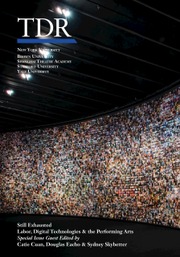Crossref Citations
This article has been cited by the following publications. This list is generated based on data provided by Crossref.
Camilleri, Frank
and
Dewsbury, John-David
2023.
On habit and performance.
Performance Research,
Vol. 28,
Issue. 6,
p.
1.


